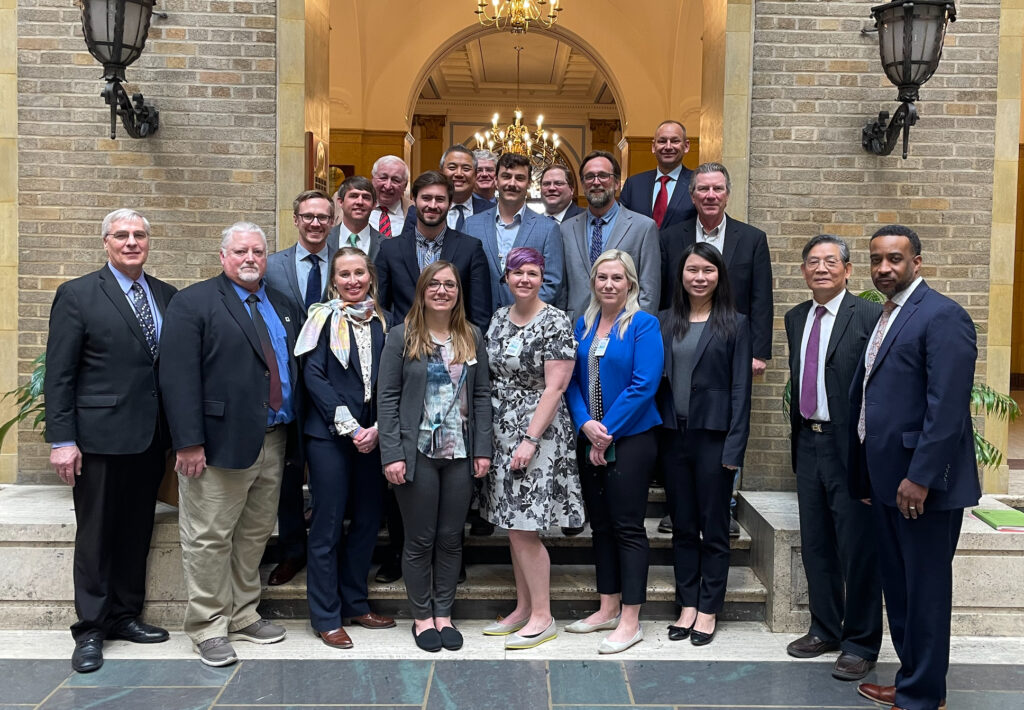
The National Wheat Improvement Committee (NWIC), a non-profit organization representing public and private wheat researchers, held its annual legislative fly-in in March. Washington Grain Commissioner Mike Carstensen participated in the meetings. The NWIC serves a vital role by providing farmers with high quality seed stock so that the United States can produce superior quality wheats. NWIC members also help to communicate, educate and advocate to advance the scientific foundation of the U.S. wheat industry. This year, NWIC representatives were joined by staff from the National Association of Wheat Growers (NAWG) and North American Millers’ Association (NAMA), who collectively met with nearly 20 offices of Congress and senior leadership at USDA’s Agricultural Research Service (USDA-ARS) to discuss the research needs for wheat and barley to key stakeholders.
Carstensen reported there was strong support in both the Senate and the House for the U.S. Wheat and Barley Scab Initiative and the U.S. Small Grains Genomics Initiative to be funded at the current levels. He also reported support for the Wheat Resiliency Initiative, the National Stripe Rust Initiative.
U.S. Wheat and Barley Scab Initiative works to reduce the impact of Fusarium Head Blight (scab) on wheat and barley. Scab significantly affects the yield and quality of wheat and barley, and its associated mycotoxins contaminate grain. The initiative funds research at the USDA-ARS and land-grant universities to breed resistant cultivars, evaluate new fungicide chemistries, assess the impact of mycotoxins, and forecast disease risk in 33 states. NWIC promoted maintaining funding at the currently authorized $15 million for FY2024.
U.S. Small Grains Genomics Initiative provides financial resources to USDA-ARS regional molecular genotyping laboratories to meet national needs in crop improvement, including automated DNA extraction, high-throughput marker screening procedures, and bioinformatics to increase practical access to rapidly expanding molecular genetic data. These new technologies allow breeders to increase the speed and efficiency of conventional, non-GMO, public and private breeding programs. NWIC promoted maintaining funding at the currently authorized $3.44 million for FY2024.
Wheat Resiliency Initiative provides financial resources for underfunded and emerging threats to wheat production in the United States beyond Fusarium head blight. Wheat Stem Sawfly, Rust, Hessian Fly, Bacterial Leaf Streak Virus have been identified as some of these threats. This is a combination of intra- and extramural funding to the USDA-ARS and public wheat breeding programs to provide solutions these challenges. NWIC asked for $1.6 million in new funding for FY2024. Fully funded, the initiative will support multi-disciplinary research, and involve scientists in 18 states.
National Stripe Rust Initiative, administered by the USDA-ARS in Pullman, Wash., provides both direct and competitive grants to scientists throughout the U.S. to develop environmentally and economically sound measures to control stripe rust of wheat and barley through funding plant breeding, epidemiology, biotechnology, and production management tools. NWIC asked for $750,000 increase funding level for FY2024.

